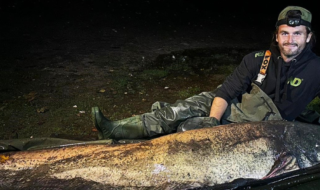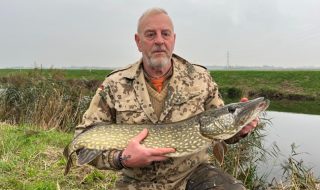New rules are being drafted to increase protection of vulnerable species of shark, skate and ray in Scotland.
Fisheries Secretary Richard Lochhead said the Scottish Government intended to introduce a protection order for the species, collectively known as elasmobranchs. Subject to parliamentary approval, this will give greater protection for 26 vulnerable and endangered sharks, skates and rays, including tope, spurdog and common skate.
The proposals will extend the current provisions, which prevent the landing to market of some elasmobranchs by commercial fishermen, to also cover fishing by recreational sea anglers.
The new order will also mean that only catch-and-release by rod and line will be permitted, allowing recreational sea anglers to continue to tag these species, increasing scientific knowledge of Scottish elasmobranchs, whilst ensuring that they are returned to the sea alive.
Mr Lochhead said: “Protecting vulnerable marine species is crucially important. Some shark, skate and ray populations are critically endangered and already protected from commercial fishing. However, these species need additional protection and so Scotland intends to introduce a new protection order to help stock recovery.
“The measures announced today will support, and clearly demonstrate, our continued commitment to the European Shark Action Plan, following changes to Scottish shark finning policy introduced last year.”
Ian Burrett, of the Scottish Sea Angling Conservation Network, said: “Thanks to all the effort of the volunteers in the Scottish Shark Tagging Programme we have shown by following Codes of Best Practice that anglers can fish for these endangered species in an environmentally friendly way and make a positive contribution to the Scottish economy. We would like to thank the Scottish Government for their positive move.”
Scottish White Fish Producers’ Association Chief Executive Mike Park said: “It is right that we take all steps possible to protect vulnerable species and groups of species, bringing recreational sea angling into line with restrictions currently imposed on commercial fishers makes a great deal of sense.”






